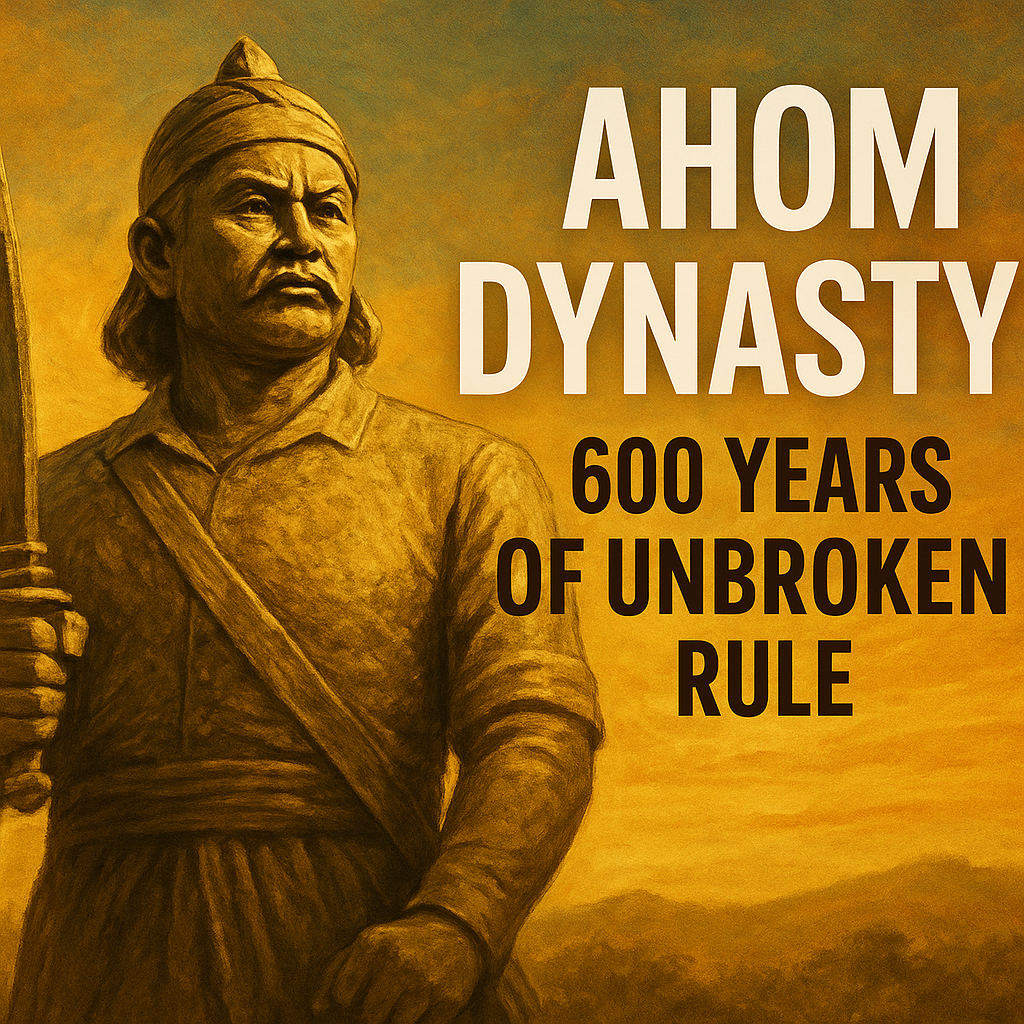🏯 Ahom Dynasty: 600 Years of Unbroken Rule
The Ahom Dynasty stands as one of the longest-reigning dynasties in Indian history, ruling Assam for more than six centuries (1228–1826). Let’s explore this magnificent journey in 20 insightful points:
- 🛶 Arrival in Assam (1228): The Ahoms, led by Sukaphaa, entered Assam from present-day Myanmar.
- 👑 Founder King Sukaphaa: He laid the foundation of a powerful kingdom in the Brahmaputra valley.
- 🤝 Assimilation Policy: They peacefully merged with local tribes like Morans, Borahis, and Chutiyas.
- 🏞️ Capital at Charaideo: First capital and symbolic royal burial site of Ahom kings.
- ⚔️ Skilled Warriors: Experts in guerrilla warfare with a powerful army structure.
- 🛡️ Resistance to Mughal Invasions: Successfully repelled 17 invasions, notably in the Battle of Saraighat.
- 🏆 Heroic Leadership of Lachit Borphukan: Defeated Mughal forces under Raja Ram Singh in 1671.
- 🔮 Efficient Administration: Introduced Paik system and excellent land revenue methods.
- 🧬 Advanced Record Keeping: Maintained history through Buranjis – written chronicles.
- 🏗️ Architectural Contributions: Built Rang Ghar, Talatal Ghar, and Kareng Ghar.
- 🌾 Agricultural Boost: Improved irrigation and promoted wet rice farming.
- 🪷 Religious Tolerance: Adopted Hinduism and supported Vaishnavism alongside traditional beliefs.
- 🧵 Promotion of Art & Culture: Encouraged Assamese literature, dance, and crafts.
- 🌐 Strategic Diplomacy: Maintained relations with Bengal, Bhutan, and neighboring powers.
- 📜 Education and Learning: Supported scholars, saints, and the Assamese language.
- 🔥 Moamoria Rebellion (1769–1805): A major revolt that weakened the kingdom internally.
- 🧭 British Interest and Burmese Invasion: Political instability led to Burmese attacks and British entry.
- 📜 Treaty of Yandabo (1826): Marked the end of Ahom rule and beginning of British control.
- 🏅 Legacy in Assam’s Identity: The dynasty deeply influenced Assam’s unity and cultural identity.
- 🏛️ Modern Recognition: Honored today through Lachit Divas and historical institutions.
🔚 Conclusion: The Ahom Dynasty is not just about power, but about unity, resilience, and pride. Their 600-year rule remains a cornerstone in the glorious history of Assam 🇮🇳.
